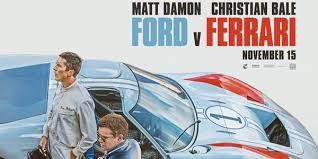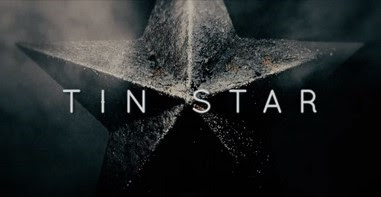1. Who knew? The extraordinary performance of Olivia Colman (above) in Yorgos Lanthimos’ The Favourite knocked me over. Where had she been hiding all these years. Later in the year I finally located the superb police procedural Broadchurch (written and produced by Chris Chibnall and made between 2013 and 2017) and all was revealed. She had been hiding in plain sight for the best part of a decade. Colman as the put upon cop whose husband betrays her was there all the time, a brilliant deliverer of lines and an actor with no fear. She topped it off when she re-appeared as Queen Elizabeth in the third series of Peter Morgan’s brilliant The Crown.
2. There’s Hope. The Australian Cinema has too often been dismal for too long a time. Then again it’s not alone. A few movies make an impression but nowhere near enough considering we spend a billion dollars a year on government subsidies to allow several dozen films to get made (and some often rather better TV) and then for most of the features to be almost universally, deservedly, ignored by critics and public alike. Then out of the blue came Rodd Rathjen’s Buoyancy a film which gives you some hope we can do something that makes us proud. Buoyancy had its premiere at, and was produced in part, thanks to the Melbourne International Film Festival. It was later, at least in Sydney, screened to small crowds at a single cinema. Its story of the modern slave trade was heartfelt and superbly told by a first timer. It had no sense of white man’s superiority in tackling a subject with universal resonance.
3. SBS is back! After a period when it lost its way and its programmers seemed bereft of adventure or even any idea of fulfilling the charter it was established to meet, SBS has bounced back to resume its position as Australian television’s best thing, at least for cinephiles and lovers of quality television drama. The revival of the World Movies channel is one admirable move but far more importantly SBS On Demand is the best free streaming service going round. Any channel which in a single year offers, in no particular order, The Crimson Rivers, Tin Star, Wisting, Broadchurch, Spiral, The Bureau, Raven, After Mabo, Deep State, Moscow Noir, Green Bush, Trapped, Berlin Station and Berlin Babylon …. To say nothing of the ever-changing feature film collection which ranged from Jerry Lewis’s showbiz masterpiece The Patsy right through to movies fresh out of the lab and often ignored by the major film festivals…
4. David Stratton endures. Still going strong at 80years old, Strat’s first love is his Continuing Education class at Sydney Uni, an annual 24 week trip into film history which utilises the great man’s extraordinary personal collection to chart a course year by year. It has lasted for a quarter of a century. This year it was the years 1968 to 1971 which were the subject of 24 features and hundreds of clips. Unique.
5. There were good movies, old and new. Just another list, not all seen in theatres but all seen for the first time. Ash is Purest White (Jia Zhangke), Brexit(Andy Haynes), Burning (Lee Chang-dong), Capharnaum (Nadine Labaki), Central Station (Youssef Chahine), Clean Up (Kwon Man-ki), First Case, Second Case (Abbas Kiarostami), Goodtime (Josh and Benny Safdie), The Great Silence (Sergio Corbucci), Joker (Todd Phillips), Manta Ray (Phuttiphong Aroonpheng), Mon Oncle Antoine (Claude Jutra), Neon Bull (Gabriel Mascaro), Official Secrets (Gavin Hood), Pain and Glory (Pedro Almodovar), Parasite(Bong Joon-ho), Street Angel (Frank Borzage),The Third Murder (Hirokazu Koreeda), Three Bad Men (John Ford), The Transient Life(Akio Jissoji), Woman at War (Benedict Erlingsson), Yella (Christian Petzold) and Yol: The Full Version (Yilmaz Guney)
6. Il Cinema Ritrovato. You have to go a long way and spend a lot of money to get there from here but Bologna’s annual week of classic cinema remains an event that sets the gold standard for cinephilia around the world. Its influence around the world magnifies every discovery. Its supporters donate much time and effort in the knowledge that their work will be appreciated far beyond the confines of a beautiful city. It is an event built on love and devotion.






























